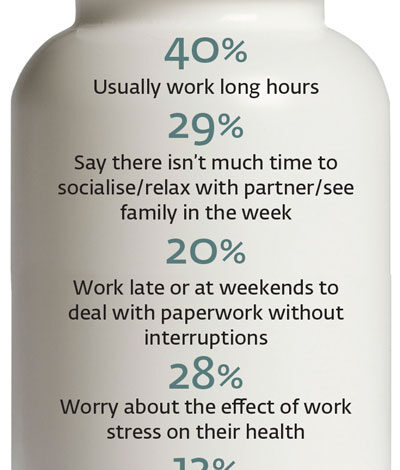5 tips to boost your work-life balance :: C+D

[ad_1]
All work and no play? Experts share their best advice for maintaining a life outside the pharmacy
Research findings that pharmacists suffer a poor work-life balance undoubtedly came as little surprise to those already tearing their hair out behind the dispensary.
An academic study released in May found 41 per cent of the 12,364 pharmacists quizzed usually worked long hours. Perhaps more worryingly, 29 per cent said work had squeezed out time for hobbies, leisure activities and maintaining relationships.
So is this an inevitable part of life as a community pharmacist? While nothing will make those piles of prescriptions go away, experts say there are some factors within your control. They share their top tips for boosting your work-life balance.
1. Keep up hobbies
Hobbies are important to maintain a life away from pharmacy, says Whitworth Chemist superintendent pharmacist Jay Badenhorst. He makes an effort to keep up his interests, which include kick-boxing and amateur operatics.
“The most important thing is to have hobbies where you associate with people outside the profession,” Mr Badenhorst tells C+D. “That way you won’t ‘talk shop’ when you are actually socialising with other people.”
Rakesh Patel, pharmacist manager at Mr Pickford’s Pharmacy, Leicester, said a mentor taught him the value of having outside interests. “He asked me what my hobbies were and I couldn’t think of one,” he reports.
The advice is echoed by the Co-operative Pharmacy’s HR business partner Miriam Bradley, who advises staff to commit to a regular weekly activity to guarantee some “me-time”.
2. Take your lunch break
When the pharmacy gets busy, it can be tempting to eat a soggy sandwich in the stock room rather than take a full lunch break. But the Co-operative Pharmacy’s Ms Bradley says regular short breaks can actually boost your performance by ensuring you stay “mentally fresh”.
Mr Pickford’s Pharmacy’s Mr Patel also advocates lunch breaks – despite the profession generally failing to take a full hour. “We often have a quick bite in 20 minutes,” he says.
3. Delegate, delegate, delegate
It may feel like you’re simply dumping work on someone else, but taking on too much yourself rarely yields good results. Attempting to process prescriptions while dealing with invoices and chasing stock will only result in a frazzled brain and a short temper.
Mr Patel argues that pharmacists should learn the value of delegating. “I think we’re notorious for hanging on to everything – we don’t delegate as well as we could,” he explains.
Ms Bradley also stresses the importance of sharing workloads across the team, as there may be colleagues who would like to do more and offer support. It’s a good idea to set realistic goals before starting work and celebrate achieving them with a small treat, she said.
“Think about working smarter, not harder – small changes in working practice can make a huge difference,” she advises.
4. Keep work at work
The advent of the Blackberry means many of us now feel compelled to scroll through work emails in our free time. And, however much you tell yourself you’re only checking emails, checking inevitably leads to answering and, more importantly, stress.
Whitworth Chemist’s Mr Badenhorst recommends having separate phones or tablets for work and pleasure. “That way you won’t be pulled into answering work-related problems while not at work,” he explains.
Mr Patel says this problem didn’t begin with the digital age – the original owner of Mr Pickford’s Pharmacy struggled to keep his work separate when living above the premises in the 1930s. “I don’t advise people to live above the pharmacy!” he tells C+D.
5. Book your holidays
Taking holiday time is important, whether you’re lucky enough to afford a luxury Caribbean break or settling for a wet week at home. Mr Patel says many contractors only take one holiday a year – perhaps part of the reason they came out as the most stressed group in the profession. He recommends taking regular breaks to avoid stress building up.
The same rule should apply to locums, even if it is tempting to forgo holidays at a time when work is uncertain. Ms Bradley says locums should try to balance the length of their working days and ensure they book regular rest days and holidays.
[ad_2]
Read More



